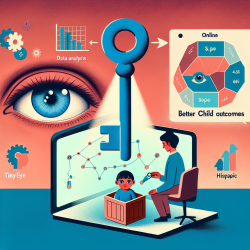In the ever-evolving landscape of healthcare, the use of clinical and administrative health data is becoming increasingly pivotal. A recent study titled Public and patient perspectives on the use of clinical and administrative health data to identify and contact people at risk of future illness—The case of chronic kidney disease, explores innovative ways to leverage this data to improve patient outcomes, particularly for chronic conditions like kidney disease. This blog delves into the insights from this research and how practitioners can apply these findings to enhance their practice.
The Significance of Health Data in Chronic Disease Management
Chronic Kidney Disease (CKD) affects approximately 10% of the Canadian population and is a leading cause of death. Early detection and intervention are crucial in preventing progression to kidney failure, which requires dialysis or transplantation. The study highlights the potential of using health data to identify individuals at high risk for CKD who are not receiving recommended care.
Key Insights from the Research
- Acceptability of Direct Outreach: The study found that most participants were open to being contacted about their health risks if it could lead to early intervention. However, they preferred communication through their primary care providers rather than unfamiliar organizations.
- Privacy Concerns: Participants expressed concerns about privacy and data security. Transparency about how personal health information is used was deemed essential.
- Ethical Imperative: There was a strong consensus that there is an ethical obligation to inform individuals at risk of serious health conditions if early intervention could prevent severe outcomes.
Implementing Research Outcomes in Practice
For practitioners looking to enhance their skills and improve patient care through data-driven approaches, here are some actionable steps based on the study's findings:
- Collaborate with Primary Care Providers: Establish partnerships with primary care providers to ensure that patients receive consistent messages from trusted sources. This collaboration can enhance patient trust and engagement.
- Enhance Communication Strategies: Develop clear communication strategies that address privacy concerns and provide transparency about how patient data is used. Consider using personalized letters or direct communication from known healthcare providers.
- Leverage Technology for Early Detection: Utilize available technology and data analytics tools to identify patients at risk for chronic conditions early. Implementing predictive models can help prioritize patients who need immediate attention.
- Advocate for Policy Changes: Engage with policymakers to advocate for changes in privacy laws that facilitate responsible use of health data for population health management while ensuring patient privacy.
The Road Ahead: Opportunities for Further Research
The study opens avenues for further research into how health data can be used ethically and effectively in population health management. Practitioners are encouraged to participate in ongoing research initiatives and contribute to developing best practices for using health data responsibly.
The potential benefits of leveraging health data are immense, offering opportunities for more proactive and personalized patient care. By embracing these insights, practitioners can play a crucial role in transforming healthcare delivery and improving outcomes for patients with chronic conditions like CKD.
To read the original research paper, please follow this link: Public and patient perspectives on the use of clinical and administrative health data to identify and contact people at risk of future illness—The case of chronic kidney disease.










